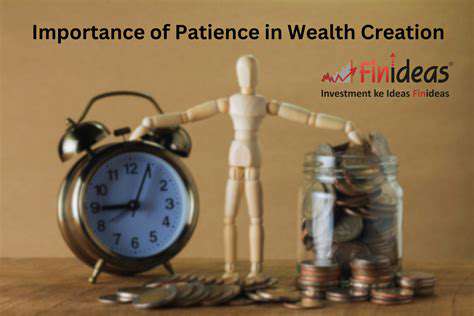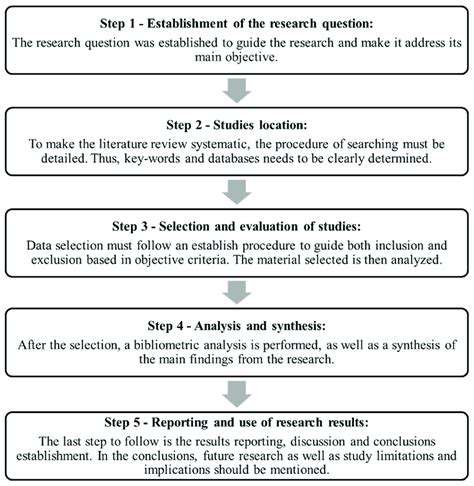TCM for Weight Management: A Holistic Approach
The Philosophy Behind TCM Weight Management
Understanding the Root Causes
Traditional Chinese Medicine (TCM) views weight management not as a simple calorie deficit, but as a deeper issue related to the interconnectedness of the body's energy systems. TCM practitioners assess the individual's constitution, identifying imbalances in the body's vital energy, known as Qi. These imbalances can manifest in various ways, affecting digestion, metabolism, and emotional well-being. Understanding these underlying imbalances is crucial for developing a personalized weight management plan that addresses the root cause rather than just the symptoms.
A thorough evaluation considers the patient's diet, lifestyle, and emotional state. Factors like stress, poor sleep, and emotional eating are often considered alongside physical imbalances. By delving into the root causes, TCM aims to restore harmony within the body, fostering sustainable weight management.
Dietary Considerations in TCM
TCM emphasizes the importance of a balanced diet tailored to the individual's constitution and specific needs. It goes beyond simply counting calories, focusing on the nutritional value and energetic properties of food. Foods are categorized according to their warming or cooling properties, and the practitioner helps the individual select foods that support the body's energy flow and balance. For example, certain foods are considered to promote digestion, while others may be beneficial for calming the nervous system.
This approach often involves dietary recommendations that are more than just restrictions. They aim to nourish the body with whole, unprocessed foods, while also considering the individual's constitution. For instance, someone with a cold constitution might benefit from warming foods like ginger and cinnamon, whereas someone with a hot constitution might find cooling foods like cucumber and watermelon more beneficial.
Lifestyle Integration for Optimal Results
TCM believes that maintaining a healthy weight is deeply connected to a holistic lifestyle. This includes not only diet but also activities that promote the free flow of Qi, such as regular exercise, appropriate rest, and stress management techniques. Exercise forms an essential part of the approach, but it's not about rigorous workouts. Gentle movement like Tai Chi or Qigong are often recommended, as they harmonize the body and mind, promoting better digestion and overall well-being.
Mindfulness and stress reduction techniques are also integrated into the lifestyle plan. Chronic stress can disrupt the body's energy balance, leading to weight gain or difficulty losing weight. TCM encourages practices like meditation, deep breathing exercises, and other relaxation techniques to manage stress effectively.
The Role of Herbal Remedies and Acupoint Therapy
Herbal remedies play a significant role in TCM weight management, offering a safe and effective way to support the body's natural processes. These remedies are carefully chosen based on the individual's constitution and specific needs, aiming to nourish the body and enhance the effects of dietary changes and lifestyle modifications. Herbal remedies can help to improve digestion, regulate metabolism, and support emotional well-being, creating a comprehensive approach to weight management.
Acupuncture and acupressure are other important modalities. By stimulating specific acupressure points, practitioners can influence energy flow and promote overall well-being, which can be beneficial for weight management. These techniques work in conjunction with other treatments, offering a holistic approach to managing weight and health.
The Role of Lifestyle Factors in TCM Weight Management
Dietary Considerations in TCM Weight Management
Traditional Chinese Medicine (TCM) emphasizes the importance of a balanced diet for overall health, including weight management. A key principle is the concept of yin and yang in food, where certain foods are considered warming and others cooling. Understanding these properties can help individuals tailor their diets to support their body's unique needs. This involves mindful choices, such as incorporating more warming foods like ginger and cinnamon while avoiding overly cooling foods that might disrupt the body's internal balance. Furthermore, TCM often recommends avoiding processed foods, excessive sugar, and refined grains, promoting whole, unprocessed foods rich in nutrients.
TCM also emphasizes the importance of portion control and mindful eating. Rushing through meals or eating while distracted can lead to overeating, as the body doesn't receive the signals indicating fullness. Practicing mindful eating, paying attention to hunger and fullness cues, and eating slowly can help regulate appetite and promote healthier eating habits. This aligns with the broader TCM philosophy of harmony and balance in all aspects of life.
The Significance of Exercise in TCM Weight Management
Exercise is not just about physical activity in TCM; it's about cultivating a harmonious connection between mind, body, and spirit. TCM recognizes that different types of exercise offer varying benefits. Gentle movements like Tai Chi or Qigong are often recommended for their ability to improve energy flow (Qi) and promote overall well-being, while also contributing to weight management. These practices focus on controlled movements and deep breathing, fostering a sense of calm and balance within the body.
Beyond these gentle exercises, TCM might also incorporate more vigorous activities, but always tailored to the individual's constitution and health status. The key is to find activities that are enjoyable and sustainable, fostering a lifelong commitment to physical health and well-being.
The Role of Emotional Well-being in TCM Weight Management
TCM recognizes a strong connection between emotional well-being and physical health, including weight management. Stress and emotional imbalances can disrupt the body's natural rhythms, affecting the digestive system and leading to hormonal fluctuations that can contribute to weight gain. TCM practices like meditation and mindfulness exercises can help manage stress and promote emotional balance, which, in turn, can contribute to better weight management.
Cultivating a positive and supportive mindset through emotional regulation techniques is a crucial aspect of TCM's holistic approach to weight management.
Sleep Patterns and Weight Regulation in TCM
Adequate sleep is essential for overall health, and TCM emphasizes its role in maintaining hormonal balance, regulating metabolism, and promoting weight management. Disrupted sleep patterns can lead to hormonal imbalances, impacting appetite and metabolism, making it harder to achieve and maintain a healthy weight. TCM suggests establishing a regular sleep schedule, creating a relaxing bedtime routine, and ensuring a conducive sleep environment to optimize sleep quality.
Acupuncture and Herbs in TCM Weight Management
Acupuncture, a cornerstone of TCM, is often used to address imbalances in the body that may contribute to weight gain. By stimulating specific points on the body, acupuncture can influence energy flow, promote better digestion, and help regulate metabolism. TCM also utilizes a variety of herbs to support weight management, addressing specific imbalances and promoting overall health. These herbs, carefully selected and administered, can help regulate appetite, improve digestion, and enhance the body's natural ability to maintain a healthy weight.
Lifestyle Adjustments for Optimal Weight Management
TCM emphasizes the importance of lifestyle adjustments beyond diet and exercise. This includes cultivating healthy relationships, fostering a supportive social environment, and engaging in activities that promote joy and fulfillment. A sense of purpose, meaningful connections, and positive emotional experiences all contribute to a more balanced and harmonious lifestyle, which ultimately supports weight management goals. This holistic approach considers the individual's overall well-being, encouraging a long-term commitment to health and wellness.
The Importance of Consultation with a TCM Practitioner
It's crucial to remember that TCM approaches to weight management should be personalized. Each individual's constitution and health status are unique, necessitating personalized consultations with a qualified TCM practitioner. This allows for a thorough assessment of the individual's specific needs and the development of a tailored treatment plan. This plan may incorporate dietary recommendations, specific exercises, acupuncture treatments, and herbal remedies, all designed to address the root causes of weight concerns and promote long-term health and well-being.












